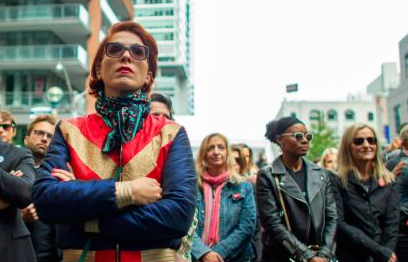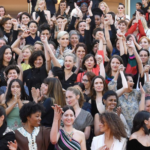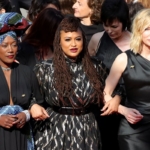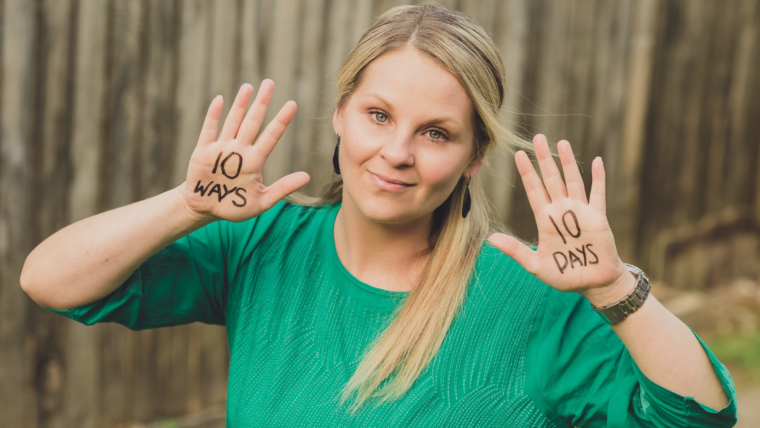
Women filmmakers, activists and actors congregated outside the hub of the Toronto International Film Festival on Saturday in a series of impassioned speeches on gender inequality in the movie industry and the power of female voices to overcome it.
The “Share Her Journey Rally,” attended by hundreds on a chilly Toronto morning, followed similar events at earlier film festivals. Ahead of the gathering, Cameron Bailey, co-head of the Toronto Film Festival, signed an inclusivity pledge to achieve gender parity in the festival’s executive ranks and on its board of directors by 2020, a pledge that has been signed other festival leaders.
“Given all the problems that we have in our world, all the sectors of society where there’s tremendous gender inequality, the one area that can be fixed overnight is on-screen,” said Geena Davis, founder of the Geena Davis Institute on Gender in Media. “The very next project that someone makes— the next TV show, the next movie — can be gender balanced. It can be fixed absolutely instantly.”
She added: “No more missed opportunities.”
Davis is also a producer on the documentary “This Changes Everything,” which premiered shortly after the rally on Saturday in Toronto.
Directed by Tom Donahue (”Casting By”), it features Davis, Jessica Chastain, Shonda Rhimes, Meryl Streep, Rose McGowan and others discussing systematic sexism in Hollywood.
“Progress will happen when men take a stand,” Streep says in the film.
Saturday’s rally included tales of personal trials and triumphs and statistics capturing the long-running disparity between men and women in front of and behind the camera.
Stacy L. Smith, whose Inclusion Initiative at USC Annenberg School for Communication and Journalism has been at the forefront of studies focusing on Hollywood’s record of inclusivity, noted that from the top box-office films from 2007 to 2017 included only four films directed by black female filmmakers, two Asian female directors and one Latina director.
“Every day I dream of a world in which the necessity to talk about this is absent, and where my fellow woman artists can speak about their work rather than campaign to do it,” said Amma Asante, the director of “Belle,” ‘’A United Kingdom” and the Toronto entry “Where Hands Touch.”
Smith is credited with developing the inclusion rider concept, a contractual provision that sets targets of diversity in casts and crews. She applauded WarnerMedia, the parent company of Warner Bros., for launching a company-wide diversity program last week beginning with Michael B. Jordan’s forthcoming legal drama, “Just Mercy.”
“Now, other studios, call us and do the same thing,” said Smith.
Keri Putnam, executive director of Sundance Institute, sought to dispel “the myth that there is a talent shortage” for women behind the camera, noting film schools are typically half women.
The Indian filmmaker and actor Nandita Das said that while she wants to just be treated as a person, “the identity of being a woman just doesn’t leave me.”
“I would like to just be called ‘a director,’ and I used to get a little bit upset at being called a ‘female director,’” said Das. “But now, I don’t know why, for the last few years I’ve started owning it and saying: Yes, I’m a woman director. When we want more women directors, we’ve got to own it. You’ve got to say, ‘Yes, I’m a woman director and I want more of us out here.’”
“We have lots of stories to tell,” added Das. “Please just hear them.”
WashingtonPost.com







